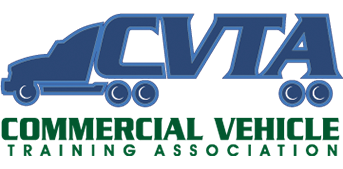Are you a company truck driver dreaming of owning your own truck and being your own boss? Becoming an owner-operator is a significant step toward independence and potentially greater earnings. This transition requires a lot of careful planning and preparation, however. Here’s a detailed guide to help you navigate the journey from company driver to owner-operator.
Financial Planning: The First Step
The first and most crucial step is financial planning. Transitioning to an owner-operator requires a significant financial commitment.
Here’s what you need to consider:
- Savings: Ensure you have enough savings to cover initial expenses, including a down payment on a truck, insurance, and registration fees. A good rule of thumb is to have at least $20,000 saved up.
- Credit Score: A good credit score is essential for securing loans at favorable interest rates. Before taking the leap, check your credit score and take steps to improve it if necessary.
- Budgeting: Create a detailed budget outlining your expected income and expenses, including costs like fuel, maintenance, insurance, and permits. This will give you a clear picture of your financial needs and help you avoid surprises.
Choosing the Right Truck
Once your finances are in order, the next step is choosing the right truck.
This decision will significantly impact your trucking business’s success, so consider the following factors:
- New vs. Used: While new trucks come with the latest technology and warranties, used trucks are cheaper but may require more maintenance. Assess your budget and choose accordingly.
- Type of Truck: Select a truck that matches the type of loads you plan to haul. Consider factors like fuel efficiency, horsepower, and capacity.
- Inspection and Maintenance: Whether buying new or used, have the truck thoroughly inspected by a professional. Regular maintenance is crucial to avoid breakdowns and costly repairs.
Managing Your Small Business
You’ll need to manage your small business effectively as an owner-operator.
Here are some tips to help you succeed:
- Register Your Business: Choose a business name and register it with the appropriate authorities. Obtain all necessary licenses and permits to operate legally.
- Insurance: Protect your investment with comprehensive insurance coverage. This includes insurance that covers liability, cargo, and physical damage.
- Bookkeeping: Keep detailed records of all your income and expenses. Consider hiring a professional accountant or using bookkeeping software to manage your finances.
- Networking and Marketing: Build relationships with shippers, brokers, and other industry professionals. Consider creating a website or social media presence to market your services.
Staying Compliant
Compliance with regulations is critical for owner-operators.
Ensure you stay up-to-date with the following:
- DOT and FMCSA Regulations: Familiarize yourself with the Department of Transportation (DOT) and Federal Motor Carrier Safety Administration (FMCSA) regulations. These include hours-of-service rules, vehicle maintenance standards, and more.
- Record-Keeping: Maintain accurate records of your driving hours, vehicle maintenance, and other required documentation.
- Continuing Education: Attend workshops, webinars, and other educational events to stay informed about industry changes and advancements.
Drive Your Future Forward
Embarking on the road to independence as an owner-operator begins with earning your Commercial Driver’s License (CDL). Phoenix Truck Driving Institute offers comprehensive training programs to equip you with the skills and knowledge needed to succeed in the trucking industry. By earning your CDL with us, you’ll be taking the first crucial step toward owning your truck and managing your own business.
Don’t wait—start your journey to independence today by enrolling at Phoenix Truck Driving Institute.








